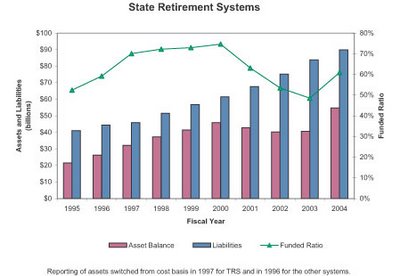
Illinois is drowning in debt and deficits.
Rhode Island is looking at major reform which Illinoisans would be wise to examine.
Lawmakers there, in June, enacted a package of tax and spending reforms that were quickly signed into law by Gov. Donald L. Carcieri (R). Rhode Islanders now have an optional flat-rate income tax, tighter caps on property taxes, the eventual elimination of an automobile excise tax, lower capital gains taxes, and controls on growth in education spending.
The session saw Democrats, who control the legislature, join Republicans to push for the reforms.
Rhode Island employers have complained about being unable to attract top people to their firms because of the heavy income tax burden imposed on high-income earners. High-income earners in Rhode Island pay an income tax rate of 9.9 percent, one of the highest state income tax rates in the country.
House Speaker William Murphy (D-West Warwick) and fellow Democratic leaders responded with a plan to allow high-income earners to pay taxes under the existing tax structure, with its multiple tax rates depending on income level, and income tax deductions and exemptions, or under a new flat-rate tax structure without deductions or exemptions. The tax rate will fall over several years, ending at 5.5 percent in 2011. Neighboring Massachusetts has a flat-rate income tax of 5.3 percent.
Lawmakers also strengthened the property tax cap. Over six years, the current 5.5 percent cap on annual increases in property tax levies would drop to 4 percent. A four-fifths vote of local governing bodies would be needed to exceed the tax cap limits.
The tax package also continues a phase-out of Rhode Island's motor vehicle excise tax.
Lawmakers also gave Rhode Island citizens the chance to vote on a constitutional amendment this November to limit state spending to 97 percent of the estimated revenues from all sources, with the balance to be deposited into a budget reserve account that can total no more than 5 percent of revenues. If the payment made to the budget reserve account would increase the amount beyond 5 percent, the excess would go to the Rhode Island Capital Fund for the funding of capital projects only, not to debt service as currently permitted.
Under the proposed amendment, debt service transfers would no longer be allowed to pay for general fund spending. The state would have to cut general fund spending or boost revenues to make up for the loss of debt service money.
Any of this sound like it might address some of our problems in Illinois?

